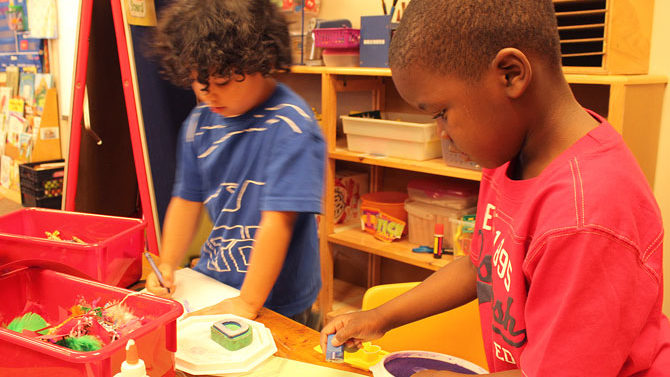Parents of Clarke County pre-kindergarten students have been in limbo since the start of the school year, uncertain how the school district planned to pay for about a dozen school days left unfunded by the Georgia Lottery. Now, there is a possibility that those unfunded last 13 days of school, in some places, may be paid for out of parents’ pockets.
The pre-K cuts came last year, when Gov. Nathan Deal removed about $300 million from HOPE Scholarship and pre-K programs funded by the lottery. As a result, 20 days were cut from the pre-K school year, and it was left up to local districts to come up with ways to make them up—if they opted to do so. Some counties trimmed costs in other places to fill the gap, while others split the difference by starting the year later and ending earlier. Clarke County decided to start all students, from pre-K through grade 12, at the same time and then apply for grants to pay for the days at the end of the year. But as of Monday, Mar. 12, the start of spring break, pre-K will end for most schools on Apr. 27.
Shelley Goodman, director of the Clarke County School District’s Office of Early Learning, said the pre-K program got seven days back by trimming teachers’ professional learning days and creating a few furlough days, and went into the final months of school still needing to pay for 13 days, at a cost of $154,552 for 36 classrooms. But then, the grants never panned out.
“We tried to pursue grant funding, and those didn’t pan out,” she said, except for one: a U.S. Department of Education grant called the Striving Readers Comprehensive Literacy Grant. But its $2.4 million could only go to a few schools, and needed to apply to children from birth through the 12th grade. “You had to look at what schools had the greatest need, and that was the feeder pattern for Coile Middle School and Cedar Shoals High School.”
That meant pre-K classes at Fowler Drive, J.J. Harris, Howard B. Stroud and Winterville elementary schools will continue through May 16. Parents at other elementary schools received a questionnaire the first week of March, asking what they would be willing to pay, per week, to extend their children’s pre-K classes another 13 days: $50, $75 or $100.
Goodman said her office was tabulating the results of those surveys in the days leading up to spring break, and planned to let parents know the results when students return to school. The survey, which was requested by the district office, is meant to gauge parents’ willingness to pay for the program, she said.
“We know it’s not perfect. We can’t pay for everyone,” she said. “Everybody knew it was coming, and we kept waiting and waiting (for grants). Finally, we were turned down by Wells Fargo and we said, ‘OK, that’s it.’ And with [the Striving Readers grant], we’re told it can be used for the days, but we’ve been told we might not be able to receive the money until June, so we’re waiting to see if we can get an exception.”
Goodman acknowledged many parents of pre-K students can’t afford to pay for the final few weeks. She said her office had been willing to partner with organizations such as the Boys & Girls Clubs, the YMCA and YWCO, but because the University of Georgia is still in session and it’s such a short amount of time, the nonprofits weren’t able to accommodate the district’s 786 four- and five-year-olds. Until the district works out a final plan, parents who rely on CCSD pre-K programs will have to wait for the answer.
Director Amy Kay of the Child Development Lab at the UGA McPhaul Center said the school made plans at the start of the year to extend the year for its own lottery-funded pre-K class. Kay said parents could pay $175 a week for the final month, ending classes at the same time as UGA’s.
About half the students will be coming back, she said, although the students who opt out of the “extended pre-K” won’t be missing any state standards, since teachers in all Clarke County pre-K classes worked those into the shorter academic year. The optional program corresponds more with the daycare classes already offered at the center.
“The whole 10 months to nine months [threw] everyone into a quandary, and we didn’t want to leave our parents hanging,” Kay said. “So, we told our parents at the beginning of the year that the last day would be April 18, and then (for the next four weeks) we’d have available to them what’s called extended pre-K.”
Parents of students starting pre-K in the fall can breathe a little easier, Goodman said, since Deal has restored money to bring back 10 days of instruction. “People need to keep writing (to lawmakers),” Goodman said. “It did make a difference: we got 10 more days… They’re our earliest learners; they need as much instruction as they can get.”
Like what you just read? Support Flagpole by making a donation today. Every dollar you give helps fund our ongoing mission to provide Athens with quality, independent journalism.










